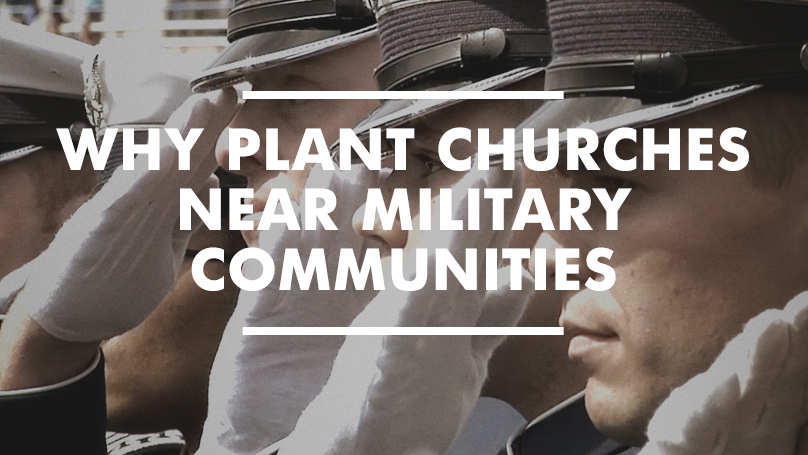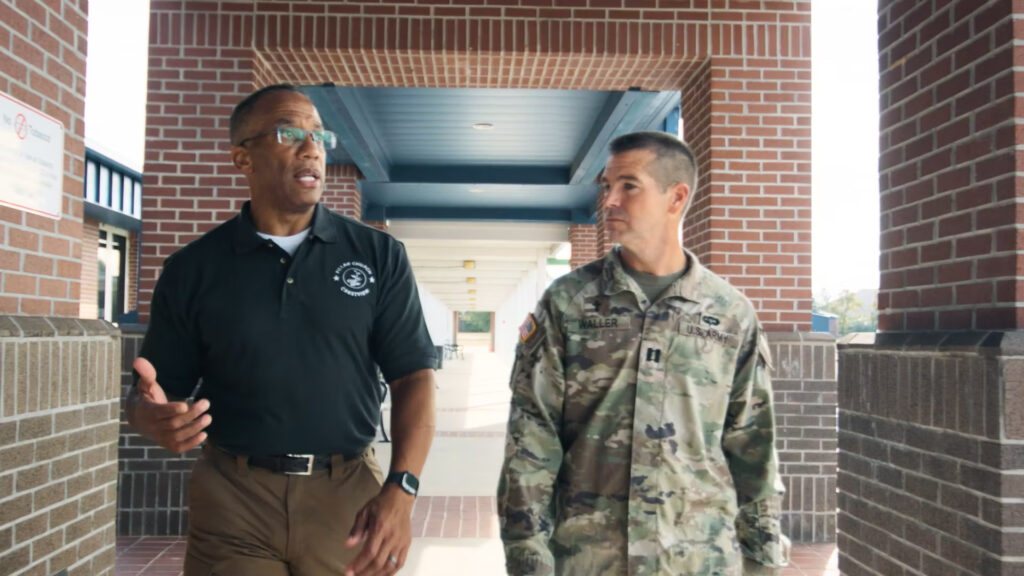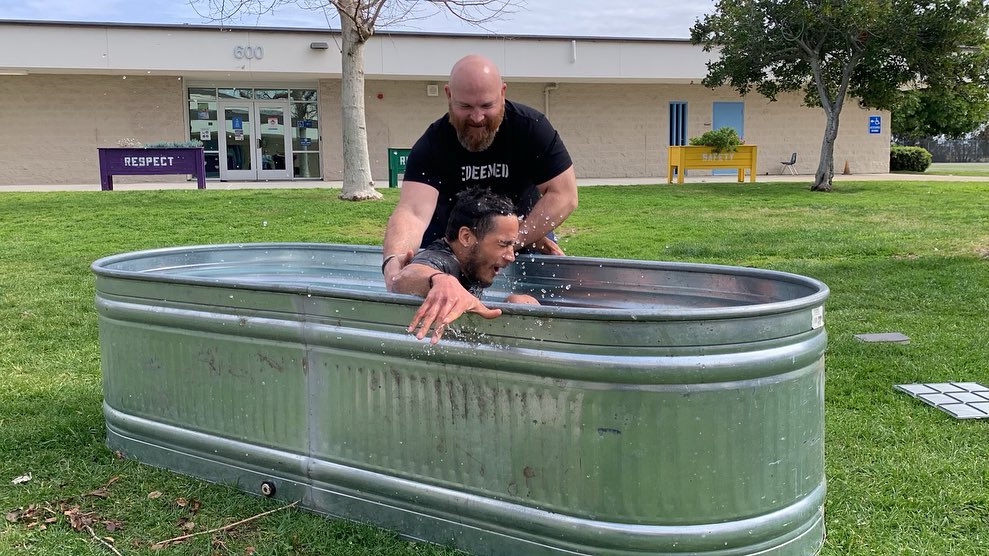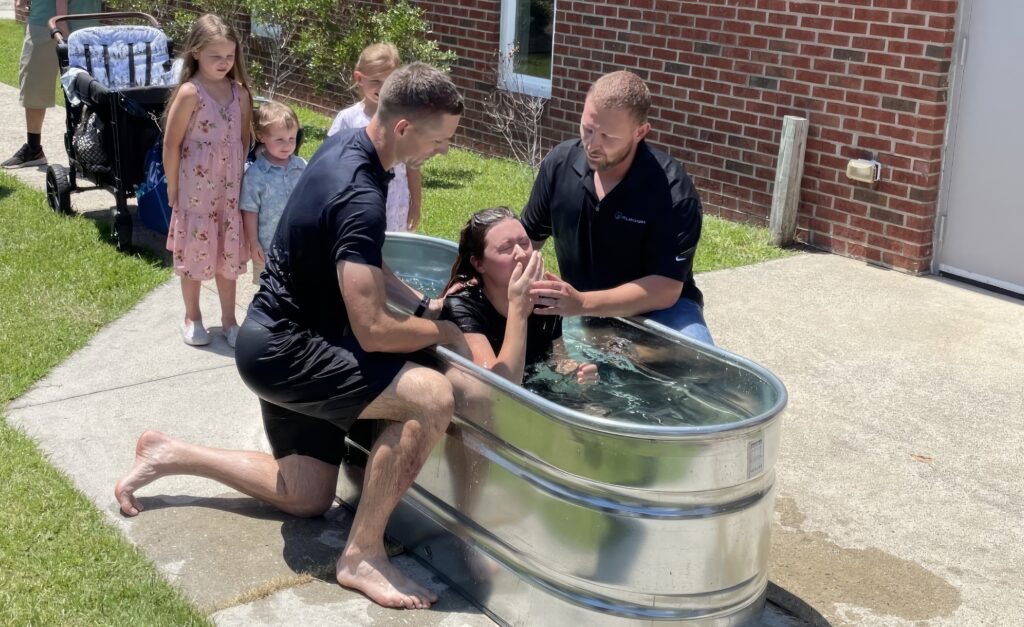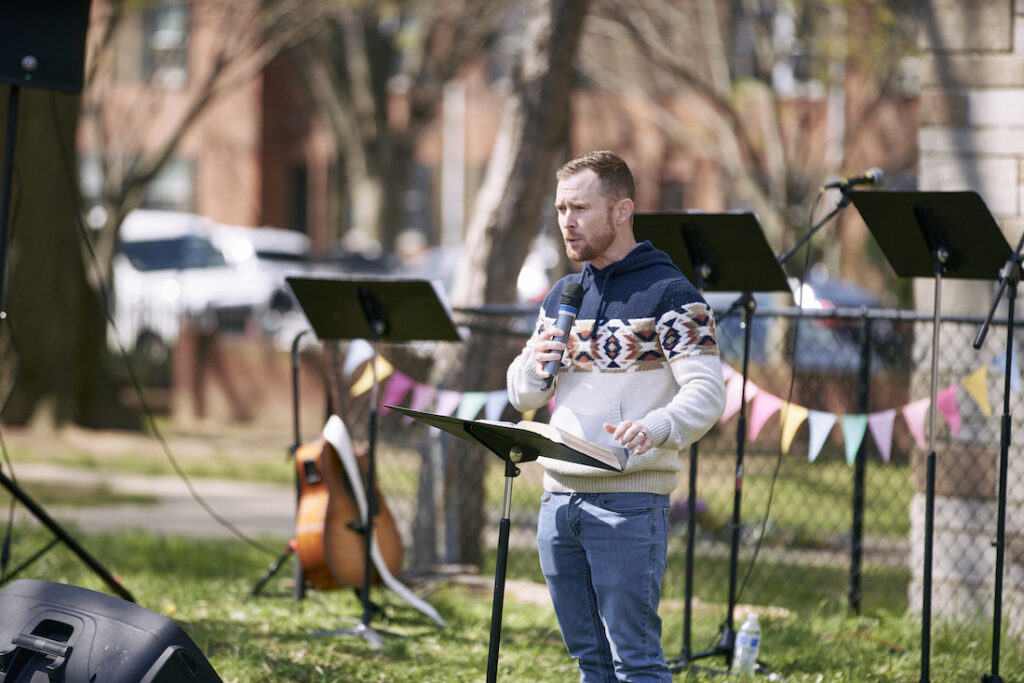“We need to plant a faithful Gospel presence near every US military base in the world.”
That was the strategic vision Kevin Ezell, president of the North American Mission Board (NAMB), burned into my heart almost two summers ago. It gave birth to one of NAMB’s newest evangelistic initiatives: Church Planting Near Military Communities.
Of course, the question is, “Why do we need such a strategy, especially with the over 1400 Southern Baptist military chaplains faithfully sharing the Gospel with our troops and their families…and, the personal ministry our Southern Baptist churches located near military communities are providing to members of the Armed Services, veterans, and their families…and, the effective military ministry of faith-based organizations such as the Navigators, CRU Military (Campus Crusade), Cadence International, Officer Christian Fellowship, and the Billy Graham Evangelistic Association?”
First of all, we must recognize the significant number of veterans living in the United States.
Members of the Armed Services- active, Reserve/National Guard, and retired- are comprised of over 23 million Americans. Approximately 18% of this number is affiliated with the Southern Baptist Convention or other Gospel partners.
Arguably, the military community represents one of the Nation’s largest unreached people groups.
Second, military members are our neighbors.
Over 85% of our military members, veterans, and their families live in our communities. Many of them are unchurched and remain unreached by local churches. Others are unengaged with no active church planting strategy in their immediate vicinity to a military base. In some cases, due to the military’s unique lifestyle of short-term temporary duty assignments or long-term combat deployments, our veterans simply feel unwanted, often invisible and forgotten.
The church must take significant steps quickly to engage our veterans with the Gospel as they, in turn, become mobile missionaries with the opportunity to take the Gospel to the nations.
Third, our veterans and their families have a growing need for a cure to their wounds of war that can only be found in the Gospel of Jesus Christ.
A recent study by Baylor University concluded that “clergy and the church–not psychologists or other mental health experts—are the most common source of help sought [by our troops] in times of psychological distress.” We must plant churches in military communities that:
1) Maintain an awareness of the needs and sacrifices of our veterans and their families
2) Create an environment of acceptance for those recovering from their war wounds and other associated trauma
3) Provide pastoral care to deployed troops, veterans, and their families
4) Establish reintegration ministry for those returning from a deployment or retiring from the military
5) Initiate an intentional trauma ministry strategy for military families
On more than one occasion I’ve heard senior military leaders refer to the following Bible verse when commending their troops for answering the call to duty to the Nation: “And I heard the voice of the Lord saying, “Whom shall I send, and who will go for us?” Then I said, “Here I am! Send me!” (ESV).
For the past fourteen years since the tragic events of September 11, 2001, almost three million men and women have responded, “Here I am! Send me!” They have deployed to Iraq, Afghanistan, the Horn of Africa, and countless unnamed places to serve the cause of freedom. Our troops and their families have paid dearly to preserve this transcendent ideal. Even today men and women of the Armed Services, having answered the call to duty, are deployed in over 100 nations throughout the world preserving the peace and securing our democratic values.
The American people have a moral obligation to care for those who have served in the military, especially those we have sent to war.
Surely, our Southern Baptist churches recognize the challenging opportunities before us to plant churches in military communities, ensuring the Gospel impacts the lives of our veterans and their families now, and for eternity.
For more information on NAMB’s approach to Church Planting Near Military Communities, see: https://www.namb.net/military-church-planting/
Published July 6, 2015
